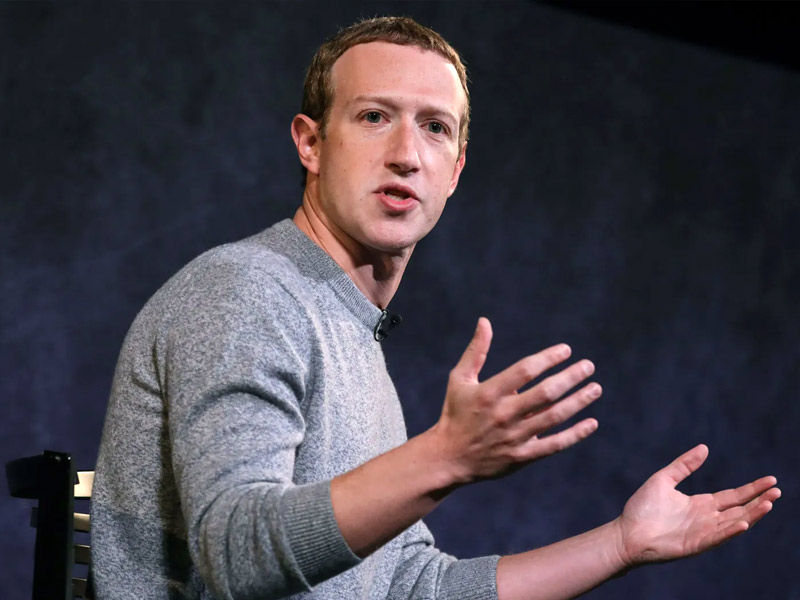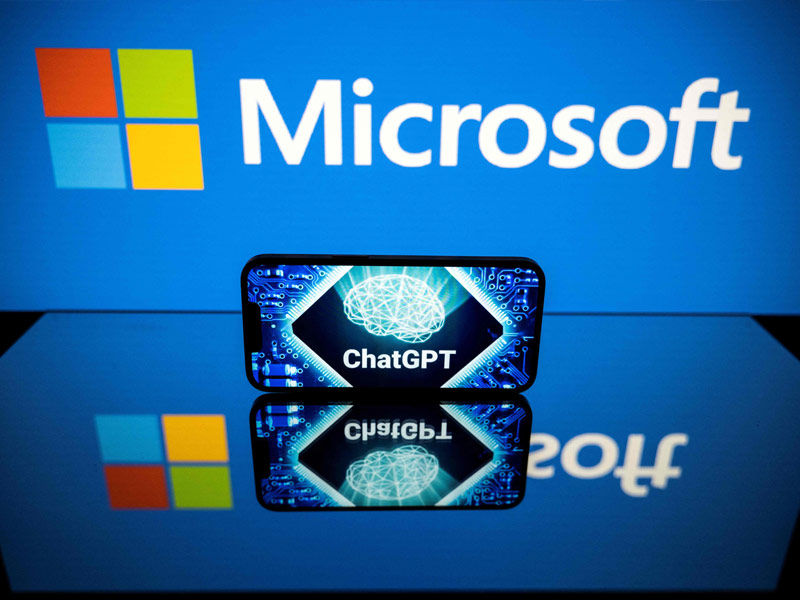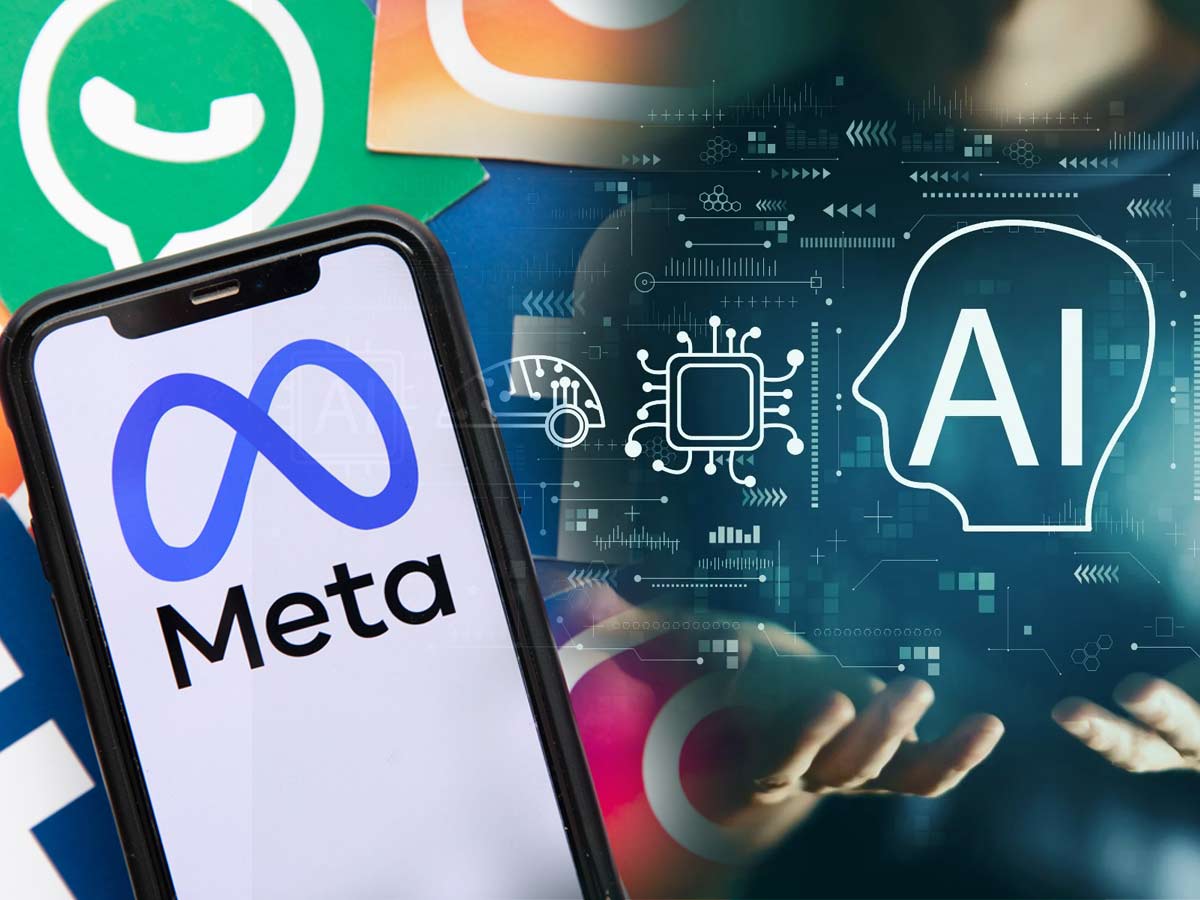Facebook parent Meta has been getting ready to launch a variety of chatbots powered by artificial intelligence with different personalities as early as the next month to boost interaction on its social network platforms.
According to three individuals with knowledge of the plans, the digital giant headed by its founder and CEO Mark Zuckerberg has been developing prototypes for chatbots that can interact with its roughly 4 billion users in a human-like manner.
These individuals claimed that some of the chatbots, which employees have termed “personas,” assume the appearance of various personalities.

According to a person with knowledge of the plans, the corporation has considered launching one that takes after Abraham Lincoln and another that offers travel advice in the manner of a surfer.
According to the source, the chatbots might be live as soon as September. They will give an innovative search function and suggestions in addition to being a fun product for people to play with.
The $800 billion firm is making the move as it fights off competition from social media upstarts like TikTok and tries to capitalize on the growing enthusiasm around artificial intelligence (AI) in Silicon Valley following the launch of Microsoft-backed OpenAI’s ChatGPT in November.
Chatbots might increase engagement while also gathering a ton of fresh information on the interests of users, according to experts. This would allow Meta to more effectively target users with appropriate content and adverts. The majority of Meta’s $117 billion in annual sales come from advertising.

According to researcher & AI ethics expert Ravit Dotan, once clients interact with a chatbot, actually expose a lot of their personal information to the business, allowing the business to do anything they want with that information.
She continued that the new advances pose questions about privacy as well as potential “manipulation and nudging”.
Meta chose not to respond.
Competing IT companies have already released chatbots with personalities. Large language models are used by Character.ai, an Andreessen Horowitz-backed startup with a $1 billion valuation, to create discourse in the manner of people like Tesla CEO Elon Musk and Mario from the Mario franchise.

150 million of Snap’s users have engaged with the “experimental, friendly chatbot” that makes up its “My AI” feature, which was introduced in February. “Early testing” of advertisements inside the functionality has only recently begun.
Also, Read Meta To Be Fined $ 100,000 Per Day By Norway for Violations
On a Wednesday results call, Zuckerberg told analysts that the company would disclose additional details about its AI product strategy in September during its Connect developer event.
According to Zuckerberg, AI “the agents that act as staff members, coaches or that can help you communicate with businesses and creators” were what he envisions, and he said, “We don’t think there’s going to be a single AI that people interact with.”
Additionally, he stated that the business was developing internal AI-powered productivity assistants for staff members as well as AI agents that may assist enterprises with customer support.
One person with knowledge of the situation suggested that in the long run, constructing an avatar chatbot in the metaverse would be investigated. The source went on to say, “Zuckerberg devotes all of their energy and time to conceiving about this.”
The generative AI technology that can produce text, graphics, and code has attracted investment from Meta. Llama 2, a huge language model that might power its chatbots, was made available for purchase this month.

Two persons with direct knowledge of the matter claim that Meta has been making efforts to purchase tens of thousands of GPUs as part of building the necessary infrastructure to support the AI products. These processors are required to power large language models.
Experts monitoring the chatbots for bias or the possibility that they can disseminate harmful information or “hallucinations” will likely pay close attention to Meta.
The company has already made small-scale, temporary forays into chatbots, which have raised similar worries. Researchers discovered that the 2021-released BlenderBot 2 Meta AI model immediately began disseminating false information.
Despite reports that it generated erroneous information and hate speech, Meta stated that it rendered the BlenderBot 3—released in 2022—more immune to harmful content.
According to a Meta insider, the company will most likely incorporate technology that will check user questions to guarantee they are appropriate. According to the individual, the corporation may also automate reviews on the output of its chatbots to verify what it says is factual and avoid hatred or rule-breaking comments.

























